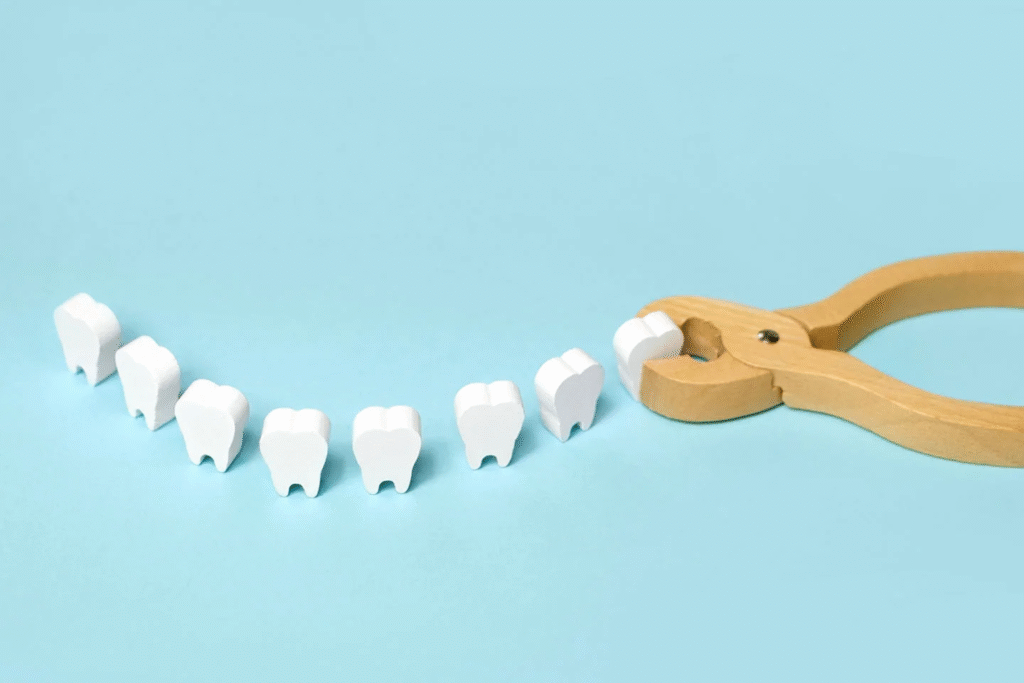Understanding Wisdom Teeth Extraction
“Wisdom teeth” are the third molars that erupt between ages 17 and 21. While properly aligned wisdom teeth can aid chewing, misaligned or impacted teeth may become trapped in the jaw or under the gums, causing cysts, infection, gum disease, pain, and damage to adjacent teeth. Your dentist will monitor your wisdom teeth and recommend extraction when necessary.
What to Know Before Extraction
Although generally safe when performed by qualified professionals, wisdom teeth extraction carries small risks such as bleeding, dry socket, and infection. Contact our office immediately if you experience dislodged blood clots, fever, persistent pain or swelling, heavy bleeding, or any foul discharge after your procedure.
Preparing for Extraction
Your journey begins with an initial consultation. Share your full medical history, medications, and any concerns with your doctor. This is also the time to ask questions and ease any anxieties about the procedure.
What to Expect During Extraction
The procedure typically starts with a local anesthetic to numb the area. The doctor makes an incision in the gum, removes any bone blocking access, and may section the tooth for easier removal. After extraction, debris is cleared, and gauze is placed to control bleeding and promote clot formation. Stitches may be used if needed.
Aftercare for Wisdom Teeth Extraction
Rest for the remainder of the day and avoid strenuous activity for at least a week to prevent dislodging the blood clot. Follow your customized recovery plan, including eating soft foods, avoiding hot beverages, and practicing gentle oral hygiene. Contact us if you experience blood or pus in nasal discharge, difficulty swallowing or breathing, excessive bleeding, persistent swelling, or severe pain that does not subside.
FAQs About Wisdom Teeth Extraction
Q. Will I be able to drive myself home after extraction?
It depends on the anesthesia used. Local anesthetic alone may allow you to drive, but general anesthesia requires arranging a ride home.
Q. Will I be in pain after extraction?
Stick to soft, low-chew foods like yogurt, soup, and mashed potatoes. Avoid hot, hard, or crunchy items and do not drink through a straw.
Q. What can I eat after extraction?
No, severe toothaches can indicate serious issues like infections. Seek immediate dental care for severe toothache in Safford, AZ to prevent complications.
Q. How old do I need to be for extraction?
Wisedom teeth can be extracted at any age, but younger adults generally experience fewer complications.
Q. What should I avoid while recovering?
Avoid smoking, spitting, drinking through straws, and vigorous rinsing to prevent dislodging the clot or stitches.
Important Dental Terminology
- Anesthesia – A substance that numbs pain or induces unconsciousness during surgery.
- Asymptomatic Wisdom Teeth – Wisdom teeth that cause no pain or crowding and may not require extraction.
- Dry Socket – A painful condition where the blood clot at an extraction site is lost or dislodged.
- Impaction – When a tooth is trapped in the jawbone or gums and cannot erupt properly.
- Pericoronitis – Inflammation of the gum tissue surrounding a partially erupted tooth.
- Third Molars – The last set of molars, also known as wisdom teeth.
- Vacuum Formed Mouthguard – A custom-fitted guard made by molding material to a patient’s dental arch.
